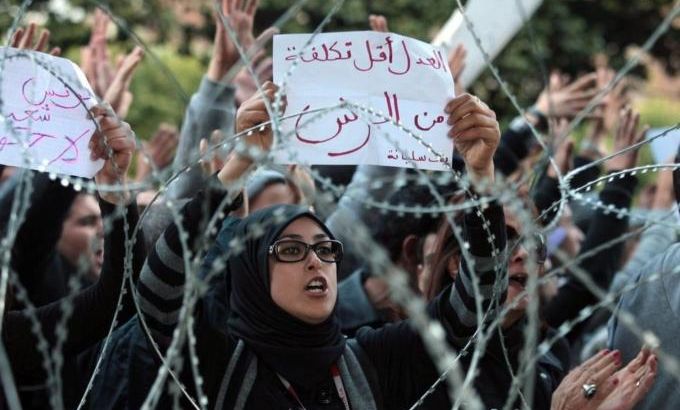Tunisia reaches deal with Siliana protesters
Governor of restive town replaced after five days of violent protests over unemployment and stalling economic progress.

Tunisia’s government has reached an agreement with the labour union of the flashpoint town Siliana, where police are battling to maintain order for the fifth straight day.
Under the deal, the assistant governor will run the town after ongoing protests calling for Governor Ahmed Ezzine Majjoubi to resign, Al Jazeera’s Hashem Ahelbarra reported from Siliana on Saturday.
Violent confrontations between police and protesters have left more than 300 people wounded since Tuesday, as residents demanded the governor’s resignation, financial aid for economic development of the region and the withdrawal of police.
Ahelbarra said: “We have learned that a deal has been reached between a delegation of representatives from Siliana and the government whereby the governor is going to be replaced by his deputy.
“This is a face saving solution for the government, which in the beginning had refused to bow to the demands of the protesters.
“Then they have to tackle the biggest issue which is developing this region where people have been complaining for decades about marginalisation, discrimination and also lack of genuine will from the previous government, including this one, to implement dramatic change in the living standards of the local population.”
Violent protests
Separate clashes erupted on Saturday between police and demonstrators in Bargou, about 20km east of Siliana.
In Siliana itself, about 100 stone-throwing youths attacked the police, injuring one of them in the head, an AFP news agency journalist reported. Security forces fired tear gas in response.
The protesters erected barricades from branches and tyres, setting some of them on fire.
Precarious living conditions, widespread unemployment and police brutality were driving factors behind the revolution that toppled former president Zine El Abidine Ben Ali in January last year and touched off the Arab Spring.
Residents in Bargou blocked a road and hurled stones at police vehicles heading for Tunis, with the police firing tear gas in response.
There were similar clashes overnight in at least two other towns, local media and witnesses reported, as the crisis appeared to be spreading.
President Moncef Marzouki had warned of such a scenario on Friday evening, saying the government of Islamist and rival Prime Minister Hamadi Jebali was not meeting the expectations of the people.
“We do not have a single Siliana… I am afraid that it could spread to several regions and threaten the future of the revolution,” Marzouki said in a televised speech.
“The expectations of the people are huge and the performance of the government is not meeting those expectations,” he added, stressing that Tunisia was at a crossroads between “the road to ruin and the road to recovery”.
Later on Friday, police fired tear gas at protesters who took to the streets of Sbeitla, near the central city of Kasserine, in support of the people of Siliana, located about 120km southwest of Tunis.
‘Excessive force’
The army withdrew from the flashpoint town just hours after it entered on Friday, a police official said.
“The army had offered to come and provide security for a few days, but the interior ministry refused,” the official told AFP, in remarks echoed by two police sources.
The authorities have said they would not give in to the blackmail of violence, accusing the protesters of triggering the crisis by attacking police first.
Clashes had intensified in the early evening on Friday, when police fired warning shots and tear gas after hundreds of protesters hurled stones and petrol bombs at them and erected barricades in the town centre, setting some of them on fire.
Amnesty International and the UN High Commissioner for Human Rights Navi Pillay both called on the authorities to end the use of “excessive force” against the protesters in Siliana.
The latest violence follows mounting clashes, strikes and attacks by Salafis across Tunisia that have plunged the country into a political impasse.
It also comes ahead of the second anniversary of the revolution, triggered on December 17, 2010, when a young fruit and vegetable seller set himself alight in the town of Sidi Bouzid to protest against police harassment.